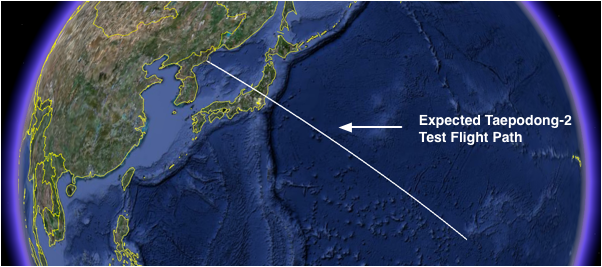
In yesterday's Oct 25th asahi.com
article, it is becoming clear that Japanese Prime Minister Yukio Hatoyama is building a complex and highly profitable Japanese position for the 21st century.
1. Playing 21st century global institutions against 20th century institutionsAlthough Hatoyama is trying to mirror Japan's halfway-house position between the US and Asia, like the UK did during the 20th century, he is also positioning Japan to play off 20th century institutions against the emerging 21st century institutions. While he goes through the motions with the UN, ASEAN, IMF, War On Terror, all these 20th century European-US-driven diplomatic institutions, he is busy building the local institutions that will either supersede these or will compete with them as the economic center of gravity shifts to Asia.
China's third-way institution-building (both political and resource-driven) in Central Asia and Africa is a great asset and one more reason why Japan needs China to build this more than ever. Regardless of whether the Central Asian
Shanghai Cooperation Organisation (SCO) or the emerging
African Union are actually going to have any clout in the near-to-mid term, these are emerging institutions that are increasingly being driven by a Chinese agenda borne of strategic necessity not a need for status or prestige or ideology. Japan can leverage the existing trust it enjoys with the defence, financial and ideo-political institutions of the 20th century; China, those of the 21st.
This is a bond made in heaven, and Japan has very little to lose, very little political capital to expend, and receives an immense power gain in return. To possibly miff some in the American bureaucracy about the demise of the "special relationship" is irrelevant, considering the US has made it abundantly clear since the Nixon days that China is whom it needs to work with, and considers Japan as its Asian geopolitical insurance policy.
This benign neglect is perfect for Hatoyama as he repositions Japan for the next 50 years. What the US does not realise is that it is dealing with China for reasons that are still embedded in the Cold War, China is only in it for economic development and to hedge its internal & currency security. It is clear that it shares very little cultural heritage with either Europe or the US (including the UN), and cares even less for it as it grows stronger.
2. Mirroring Europe's integration: from ECSC to EC to EUTrying not to read too much into the proposed name "East Asian Community", it does seem that Hatoyama is looking at recreating the European EC model by currently including the ASEAN group of South-East Asian nations into this "Community" plan. I would argue that in reality, he is looking to a prior Community model: the European Coal And Steel Community (ECSC).
According to Wikipedia's entry for the
ECSC:
The ECSC was first proposed by French foreign minister Robert Schuman on 9 May 1950 as a way to prevent further war between France and Germany. He declared his aim was to 'make war not only unthinkable but materially impossible.' The means to do so, Europe's first supranational community, was formally established by the Treaty of Paris (1951), signed not only by France and West Germany, but also by Italy and the three Benelux states: Belgium, Luxembourg and the Netherlands.
Fast-forward sixty years: in 2009, Hatoyama announces plans to create an East Asian Community. To draw a simplistic parallel between this and Japan-China-Korea-Taiwan is rather compelling, and I would argue the right way to go. It makes both a (likely) future war/conflict on resources between Japan and China unlikely, but also draws on the historical parallel between Germany-France and Japan-China to set aside enmity in the interest of future gain, again, a very Asian preference.
I would suggest that East Asia take things one step at a time and starts with an ECSC-like core (Japan-China-Korea-Taiwan), then progressively extends it to the Asian ASEAN members to create an EC model. Eventually, they should extend these to non-pancultural groups such as Australia, UAE and Russia. I suggest the US stay out, or on the sidelines as an observer. There are enough global institutions where the US has a stranglehold to leave this one open to Asian manoeuvering and leverage building.
3. Towards a new Asian Bretton Woods by 2018China's suggestion for an upgrade to the dollar as world reserve currency, to be replaced by SDRs (Special Drawing Rights) as a supranational basket of currencies, is pointing to a new Bretton Woods by 2018. This was made clear by Xiaochuan Zhou, the head of China's central bank, in a
statement earlier this year in March 2009, when he pointed to the need to beef up these SDRs as a hedge against future global financial/economic instability.
7 months later, secret negotiations are revealed between the UAE, France, China, Russia and Japan to pay for oil using a basket of currencies as made clear in the October 2009 article in the
Independent. The negotiations suggest:
[...]moving instead to a basket of currencies including the Japanese yen and Chinese yuan, the euro, gold and a new, unified currency planned for nations in the Gulf Co-operation Council[...]The plans, confirmed to The Independent by both Gulf Arab and Chinese banking sources in Hong Kong[...] augurs an extraordinary transition from dollar markets within nine years.
Note the perfectly-timed parallel move by the other heavy-hitter in the Gulf region, Iran, just one month before this revelation in September 2009 to switch from
dollars to euros for all oil dealings:
Iran's President Mahmoud Ahmadinejad has ordered the replacement of the US dollar by the euro in calculating the value of the country's Oil Stabilisation Fund (OSF). The edict, issued on Sept 12 [2009], follows a recommendation by the trustees of the country's foreign reserves[...]
Consider also the fact that Japan owns much emerging market debt (including debt to China) and has been aggressively promoting Japan Yen debts across emerging markets and its economic development aid recipient countries since the 90s. China's recent resource grab over the last few years in Africa is basically covering for emerging market debt expansion denoted in Chinese Yuan. So Japan takes the debt market in Asia, China in Africa.
As a recap:
- China, Japan, Russia, UAE, France: discuss move to first SDR basket by 2018
- UAE and Saudi Arabia/Qatar/Kuwait: plans for a weakly coupled single currency by 2015
- Iran: moves to Euro for oil trade as prelude to alignment with first SDR basket
- Debt: Japan takes Asia, China takes Africa, this coopts deviation from Japan/China's agenda for the first SDR basket
- Second SDR basket in 2028, as the EAC integrates more deeply with ASEAN/Middle East members??
Note the conspicuous absence of both the UK and the US... the center of gravity is shifting.
4. The start of the Asian CenturyImagine for a moment that at the end of the 2nd world war, West Germany and France owned much of the US debtbook, and then announced the creation of a European Community. Imagine they set the agenda for most emerging capital, resource and political power with both industrial, and debt-/currency-driven financial clout. Imagine they set the scene for a new Bretton Woods, setting the financial and currency agenda for the following 30-40 years. Imagine the sheer power of this. Now replace "West Germany and France" with "Japan and China". This is happening has we speak.
I think it is safe to say that Hatoyama's plans for a Japan tag-team powerplay with China mark 2009/2010 as the official start of the Asian Century.































.png)
